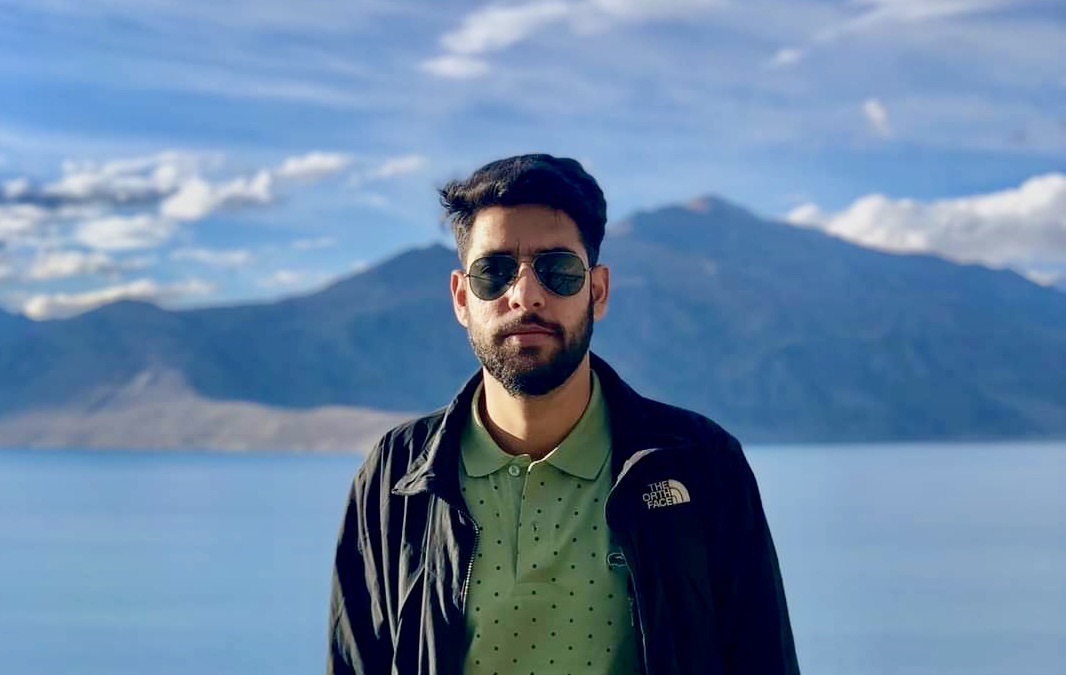'My journalism seems to be the reason for these travel restrictions': journalist Aakash Hassan on being barred from flying to Sri Lanka

Independent journalist Aakash Hassan from Kashmir writes for The Guardian and has covered human rights and politics from the region for reputed media outlets like Al-Jazeera, The Intercept, and South China Morning Post among others.
Arjumand Shaheen | TwoCircles.net
SRINAGAR (JAMMU AND KASHMIR) — On July 26, Aakash Hassan, an independent journalist from Kashmir, was stopped by immigration authorities at New Delhi international airport from boarding a flight to Colombo, Sri Lanka. Hassan, who contributes to the British publication The Guardian, was going to Colombo for a reporting assignment.
Hassan shared photos of his tickets and passport on his Twitter handle stamped with "Cancelled without prejudice". Hassan is the second Kashmiri journalist stopped from travelling outside the country in the last month. On July 02, Pulitzer Prize-winning photojournalist, Sanna Irshad Matto, was barred from travelling to France at the same airport. Both journalists said they were stopped without being provided with any reasons.
Hassan shared his experience with TwoCircles.net. Below are the edited excerpts:
Tell us briefly what happened on the day you were stopped from boarding a flight to Sri Lanka. Did you expect this?
When I checked in and arrived at the immigration counter, the officials stopped me. After checking my passport, they did not proceed further. Taking my passport and boarding pass, they took me to the immigration office where I asked to sit in a room. I inquired what was the matter, but got no answer. After making me sit for hours, two officials came and started questioning me about my background, my work, where I was heading, and the purpose of my visit.
When the airline staff came in to check for me, the officials asked the airline staff to offload my luggage from the aircraft. It was then that I figured that I will be stopped from flying. After almost four hours, my passport was returned and officials said that they cannot allow me to travel.
As earlier in July, photo-journalist Sanna was stopped earlier from travelling abroad, I was apprehensive that I may be stopped too, which eventually came true.
Why do you think the authorities barred you from travelling? How do you see these travel restrictions?
The authorities did not give me any reason officially. However, the officials had told the airline staff that there is a lookout circular issued against me and that’s why I have been barred from flying.
I report facts on the ground and share them on social media. My journalism seems to be the reason for these restrictions. I see it as an attempt to stifle the freedom of journalists, especially those who report facts on the ground.
Since you are the second journalist to be barred from travelling in the same month, do you think there is a pattern?
Yes, it is not a coincidence at all. Before me, a Pulitzer Prize-winning photojournalist was barred from travelling without being given any reason. There has to be a pattern which is quite evident.
How do you think these travel restrictions impact other journalists in Kashmir?
When authorities harass or intimidate a journalist, it does not involve him/her only. It is also about sending a message to the whole journalist community.
When any journalist is harassed or when I was stopped from travelling, it affects my colleagues (working in Kashmir.) Many journalists I am in touch with are concerned about themselves after seeing what happened to me. Some of them are even thinking about whether to continue working as a journalist or not. All this has ultimately led to journalists switching fields, self-censorship or leaving Kashmir and working in other places.
Do you think Kashmiri journalists, especially freelancers who face challenges on the ground or from the authorities, receive the required support from their organisations and journalist bodies?
Organisational support is lacking for those journalists who face persecution in any form. In case of an emergency, a freelancer has to fend for themselves. Some organisations are not fair to freelance journalists. These are pressing issues, not only facing Kashmiri journalists but generally in the media industry.
I believe freelancers should be treated in a much better way, as they are a critical part of journalism right now in the world.
My story of being barred from travelling to Sri Lanka did get some coverage in the mainstream media, however, in Kashmir, most of the leading media outlets didn't report on it. There has been condemnation from some media watchdogs who regularly issue such condemnations and statements but mainstream journalists have not spoken.
Barring Kashmiri journalists from going out is a new low for press freedom. Our job, career and livelihood are at risk. I was going to Sri Lanka to do my job, but by stopping me, the authorities not only barred me from rendering my journalistic duties, but they also deprived me of my livelihood.
Arjumand Shaheen is an independent journalist based in Srinagar, Kashmir. She covers human rights, gender, health and culture. She tweets at @UroojAndrabi
